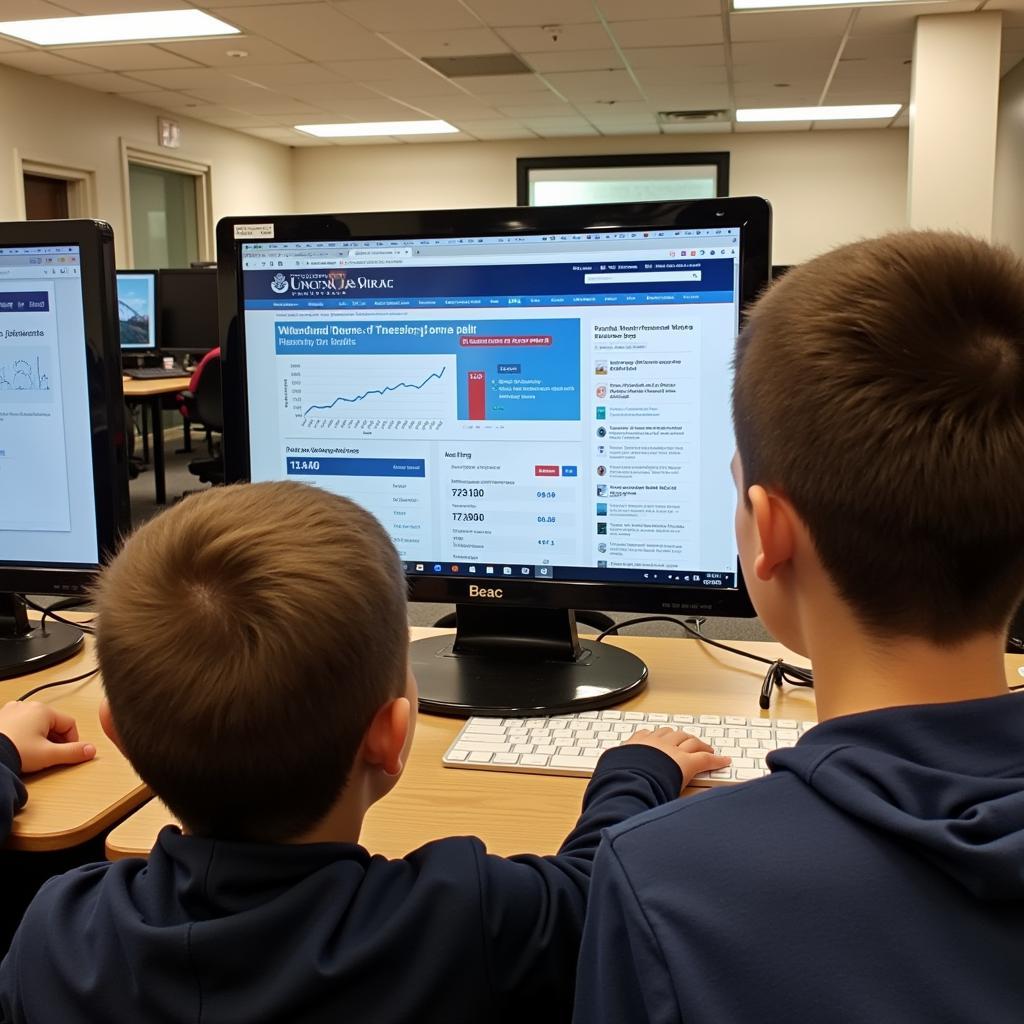Navigating the vast digital landscape in search of reliable research sources can be daunting for any student. With countless websites vying for attention, identifying credible and trustworthy platforms is crucial for academic success. This article delves into the world of online research, equipping students with the knowledge and tools to find the best research sites for their needs.
What Makes a Research Site Trustworthy?
Before we dive into specific platforms, let’s establish the hallmarks of a trustworthy research site:
- Authority: Look for websites affiliated with reputable institutions like universities, government agencies (.gov), or established organizations (.org).
- Accuracy: Information should be well-researched, factually accurate, and backed up with credible sources.
- Objectivity: Beware of sites pushing a biased agenda. Look for balanced perspectives and neutral language.
- Currency: Information should be up-to-date, especially in rapidly evolving fields. Check for publication dates or last updated timestamps.
- Citation Practices: Trustworthy sites will properly cite their sources, allowing you to verify information and explore further.
Top-Tier Research Databases for Students
For in-depth scholarly research, university libraries often provide access to these powerhouse databases:
- JSTOR: A digital library brimming with academic journals, books, and primary sources across diverse disciplines.
- EBSCOhost: A comprehensive research platform offering access to a vast collection of articles, ebooks, and other resources.
- ProQuest: Another leading provider of research databases, known for its extensive collection of dissertations, theses, and working papers.
Government Resources: A Treasure Trove of Data
 Students accessing government data
Students accessing government data
Government websites are invaluable resources for data, statistics, and reports:
- Library of Congress: Explore a vast digital collection of historical documents, photographs, maps, and more.
- National Archives: Uncover primary source materials related to U.S. history, including government records and historical documents.
- Data.gov: This portal provides access to open data from various U.S. government agencies.
Exploring Specialized Research Sites
Depending on your field of study, specialized research sites offer focused information:
- PubMed (Medicine): The go-to resource for biomedical literature, providing access to MEDLINE and other resources.
- PsycINFO (Psychology): A comprehensive database for psychological research, covering journals, books, and dissertations.
- ERIC (Education): A vast collection of educational research and information, sponsored by the U.S. Department of Education.
Beyond the Databases: Exploring Other Avenues
- Google Scholar: While not a database itself, Google Scholar can help you find scholarly articles and other resources.
- Online Encyclopedias: Reputable online encyclopedias like Britannica and Wikipedia can provide a good starting point for research, but always verify information from more authoritative sources.
Conclusion: Choosing the Right Research Sites for You
“The key to successful research,” says Dr. Emily Carter, Professor of Information Science at the University of Washington, “lies in choosing the right tools for the job.” By understanding the criteria for evaluating website credibility and exploring the diverse range of resources available, students can equip themselves with the knowledge to excel in their academic endeavors. Remember, research is a journey of discovery, and the right resources can illuminate your path to knowledge.
Need Help with Your Research?
Contact our research experts at 0904826292, email us at research@gmail.com, or visit us at No. 31, Alley 142/7, P. Phú Viên, Bồ Đề, Long Biên, Hà Nội, Việt Nam. We are here to assist you 24/7.